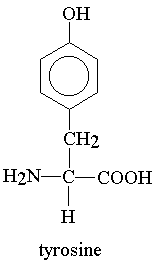Alkaptonuria
By: Saidia Ali
We are currently studying the genetics unit and we all know the basics now. In the beginning of this unit we learned about karyotypes and non-disjunction. All the information related to that will be useful in understanding this disorder better. So, get ready to learn about alkaptonuria!
Alkaptonuria also called AKU and black urine disease is a very rare genetic disorder that occurs because of a mutation in chromosome 3. Alkaptonuria is an inherited recessive disorder which means that it must be passed on by both parents. People who have one copy of the gene are carriers of the disease and do not suffer from it but there is a twenty-five percent chance of them passing it to their offspring. We know this because we have done Punnett square problems related to similar situations.
Now that we know some basic information about the inheritance of alkaptonuria but what exactly is it? Alkaptonuria is a disorder caused by the lack of an enzyme homogentisic dioxygenase (HGD). Patients who have alkaptonuria are unable to break down a substance called homogentistic acid. As a result this acid starts to build up in the body leading to many severe problems which we will discuss later on. Patients with this disease are also unable to metabolize the amino acids called phenylalanine and tyrosine. These two amino acids are important in producing hormones and pigments. As I've mentioned before, alkaptonuria is a rare disease and it is estimated that it affects one out of 200,000 worldwide. In some countries AKU is more common like in Slovakia and the Dominican Republic where it affects one in every 19,000. AKU is not a disease that is only inherited by men or women, it is a disease that affects men, women, and children equally. AKU patients have a normal life expectancy.


Sometimes there are diseases where the patients cannot feel or see the symptoms but a patient with AKU can see the problems. Here is a list of the symptoms:
- One of the earliest signs in a baby are dark stains in his/her diaper.
- Urine turning black or brown when exposed to air is a common symptom
- Stained cartilage in the ear
- Darkening of skin
- Arthritis in knees, back, and/or hips
The buildup of HGD can lead to heart problems.



When AKU is suspected here are ways to diagnose the patient. One way is gas chromatography which is used to check for homogentisic acid in the urine. DNA testing can also be done to look for the mutated gene.
Although there is no particular treatment for AKU there are ways to lower the symptoms and keep the disease from getting out of control. Many doctors recommend exercising and physiotherapy to assist the patient with arthritis. Maintaining a healthy diet is also key. Evidence shows that increasing the input of vitamin C can decrease the development of arthritis. Another crucial change in an AKU patient's diet is eliminating food that contain phenylalanine and tyrosine. These foods include meats, soy, nuts and seeds, and artificial sweeteners.
Learning about this topic was very interesting and I hope that you enjoyed learning about this topic just as much as I did researching it.
Question: Do you think genetic engineering will help us find a cure for alkaptonuria in the future? Why or why not?
http://www.ncbi.nlm.nih.gov/pmc/articles/PMC3108520/
Learning about this topic was very interesting and I hope that you enjoyed learning about this topic just as much as I did researching it.
Question: Do you think genetic engineering will help us find a cure for alkaptonuria in the future? Why or why not?
http://www.ncbi.nlm.nih.gov/pmc/articles/PMC3108520/

Personally I do not think that genetic engineering could cure this disease fully because since it is genetically carried, there is no way to cut it off when people reproduce. I think that if genetic engineering were to occur, it would help prevent or reduce the severeness of the disease. However there will always be carriers, and it will be reproduced in offspring.
ReplyDelete-Rachel
Thanks for your information. Please accept my comments to still connect with your blog. And we can exchange backlinks if you need. What Is Alkaptonuria?
ReplyDelete